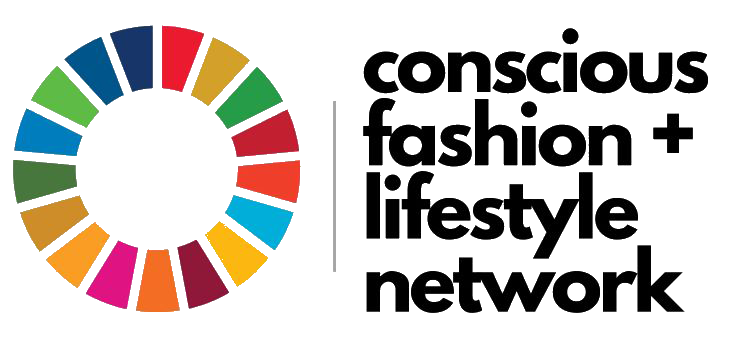VOGUE Business interviews ACTAsia’s CEO Pei Su about Global Fashion House Kering’s ground breaking fur free move
Kering, like other brands in the past, has been concerned about alienating customers with this bold move but now feels that a new generation wants to take a hard line. As Pei explains in the Vogue interview: “This is a very new concept for the Chinese consumer. But with Gen Z, they’re more aware of sustainability. They want sustainable products. That shows how we have shifted.” (See ACTAsia’s China Consumer Survey Result) It can also be a teachable moment for the industry in China, says Su. “For lots of Chinese fashion retailers or brands, sustainability is very new to them. Sustainability is not only marketing jargon, it has to be accountable,” she says. “That comes back to why the Kering announcement is so important.” Pei was thrilled to be able to share this ground breaking news with the global and Asian audiences through Vogue Business report.
https://www.voguebusiness.com/sustainability/kering-bans-fur-will-other-conglomerates-follow
The Significance of Kering’s Announcement
ACTAsia has been working on the fur free issue since 2012, witnessing change in many countries but fur free and sustainability in fashion has still been in early stages in Asia compared to the west. As Pei comments: “It is so fantastic to see a giant luxury corporate going entirely fur-free instead of individual retailer brands”. Indeed, back in 2017, Kering’s flagship brand Gucci went fur-free and Stella McCartney was already fur-free, then a couple of years later, three of their brands joined fur-free, but Kering never claimed to be fur-free as a ‘corporate’. The news of Kering going entirely fur-free is significant in the history of the fur-free movement – especially given the spotlight on climate change and the COVID pandemic.

Fur Farming link to the pandemic
Mink fur was once seen to be a must-have accessory but now mink could not be further from fashionista’s designs. In 2020, COVID19 spread to minks on EU fur-to-fashion farms and the virus then spread from the animals to a farm worker. Following this outbreak, Denmark ordered the culling of 17 million farm-raised minks. Mink farms in 10 countries have since been hit by outbreaks, including the U.S., Canada, France, Greece, Italy, Latvia, Lithuania, Poland, Spain and Sweden. The racoon dog is also the top suspect as the intermediate host according to a German Epidemiologist.

So going fur free is not simply for ethical reasons?
Absolutely not. The movement may have started with ethical reasons due to animal suffering. However, we are now facing the unstoppable climate crisis and the COVID pandemic crisis. Intensive factory fur farming and processing cause a lot of environmental issues and this practice is not sustainable. With all these concerns ACTAsia could no longer see fur free as merely an ethical issue. Globally we also need to fully embrace the One Health concept – whereby humans can only be healthy when we protect animals and nature.

But is fur production still big in China?
China is the world’s biggest national producer and consumer of fur. As fur farms close in Europe, China’s industry strengthens, as international partnerships take advantage of unregulated production and high profits. In addition, the relevant regulations related to fur farming in China are much less stringent than in Europe and North America – which have provided another advantage for foreign investment and migration of business to China.
Despite the steep decline in mink farming, the production of fox and raccoon dog pelts regrettably remains strong. There is little understanding of animal sentience or animal suffering. Animal protection legislation that insists on meeting the needs of workers and captive animals has the potential to make fur production economically unviable in other parts of the world but in China there is no legislation to protect workers or animals from harm, and as a result, production is cheap.
How does Kering’s move affect Chinese fashion retailers?
This announcement will be very significant. ACTAsia has been promoting the Fur Free Retailer scheme in China since 2018. Through its Caring for Life Education programme, ACTAsia connects sustainable, fur-free fashion producers with consumers seeking responsible fashion. By promoting a consumer market for sustainable, cruelty-free produce, ACTAsia has been strengthening a gradual move away from the exploitation of people, animals and nature – which are inherent to the fur industry.
ACTAsia’s work with Fur Free Retailer scheme
ACTAsia’s Fur Free programme is run in conjunction with the Fur Free Retailer. We inform consumers of the story behind fur, the brutal cruelty and catastrophic environmental damage that result from production. Fur-Free Life gives consumers the facts behind China’s fur industry, whether that’s farming wild animals or capturing stray dogs and cats. As part of the Fur Free Retailer scheme, ACTAsia has recruited 53 brands in China, and we continue to encourage fashion designers and retailers to pledge never to use real fur. More than 920 retailers have joined the international scheme to-date.

A Fur Free Future
ACTAsia has been lobbying for fur free fashion for years – informing consumers of the story behind fur, the brutal cruelty and catastrophic environmental damage that result from production. But now the reality of the risk zoonotic disease is embedded in the fur trade the major fashion houses are now really listening.
ACTAsia hopes that the Kering news will inspire other fashion brands to go fur-free. The concept is still relatively new for many fashion houses but it is hoped that Kering’s global move will be seen as a game changer for the fashion industry in China.
![ACTAsia [logo]](https://www.actasia.org/wp-content/themes/ACTAsia-2022-theme/assets/img/actasia-en-colour.svg)



